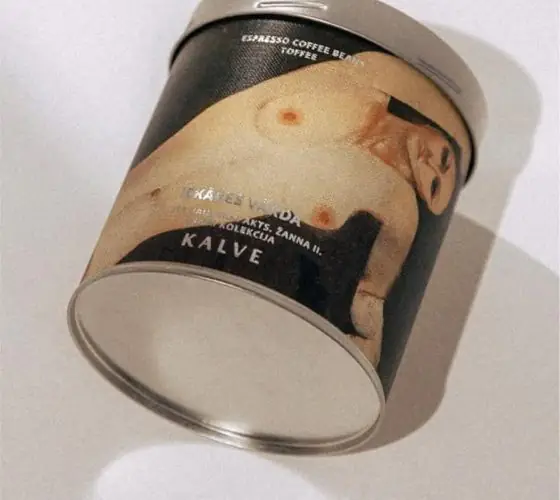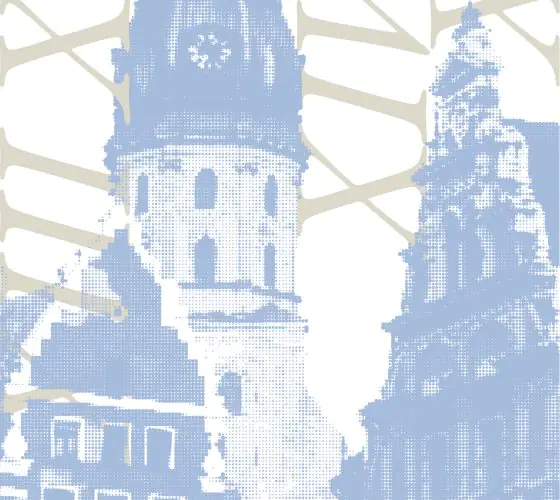
memorialiemuzeji.lv
In 1933, the son of farm laborers Otto and Berta was born—Ojārs. The life of farmhands meant relentless physical labor, but for little Ojārs, the frequent, almost yearly moves were much harder to bear. His father would find a new employer, and the family would relocate to another home. The lack of a permanent home left a deep scar on his soul. Yet one of these moves would prove to be a pivotal moment for Ojārs and his future as a poet.
He was just three years old when the family moved again. By a stroke of luck, their new neighbor owned the largest and most well-stocked private library in the area. Even more fortunately, the library’s owner allowed the poor neighbor boy to visit freely. It was in this library that Ojārs learned to read. Later, he would recall how, for the first time in his life, he felt like a real person while surrounded by books in that house. The library became a beacon of light in the small, rural life of a little boy, a light that might have sparked the birth of a poet within him.
It is said that he wrote his first poem at the age of four, though it was more of a patchwork of lines he’d liked from the books in that very library. Thirteen years later, Vācietis experienced his first publication in the magazine Bērnība (“Childhood”). That same year, his second poem, Miera balss (“The Voice of Calm”), was published. Whether it was part of his plans or not, this “voice” would define the way his poetry spoke to the world in the years to come.
“He Wanted to See and Understand Everything Himself”

memorialiemuzeji.lv
This desire was likely the main reason why Vācietis began writing. He passionately wanted to see—both literally and figuratively—what he deemed important and transferred his impressions of what he saw and experienced onto paper. These impressions deeply resonated with his readers. Once, defying instructions, he even ran out of a lecture, exclaiming, “It’s golden autumn outside—how can anyone sit here?!”
As a young poet, Ojārs sent his first poems to his mentor, the renowned writer and poetess Mirdza Ķempe. Her initial feedback went something like this: “Your poems are very interesting, Ojārs, but it’s unclear if you’ll become a true poet. There’s still much to learn and a lot of work ahead.” It seems Ojārs took this advice to heart. Even years later, his shelves were filled with books on chemistry, biology, and geography. Whether or not he studied them thoroughly is hard to say, but he clearly understood that true poetry is a fusion of soul and intellect. Thus, he cultivated both.
While intellectual growth is somewhat straightforward, soulfulness manifests differently for everyone. For Ojārs, his most essential ritual of soulful enrichment was long, now-legendary walks through Pārdaugava, particularly in the Āgenskalns district. It was there that he finally found a home of his own—a dream he had carried for so long. After these walks, which often lasted several hours, he would frequently return with fully formed poems in his mind, needing only to be written down.
The Trailblazer
At the age of 23, a year before graduating from university, Vācietis published his first poetry collection. It was a sensation, marked by late-night queues at bookstores and hundreds of letters from adoring fans. This wasn’t just Vācietis’s first book—it was the first postwar poetry collection in Latvia. Poet Imants Ziedonis even remarked that Vācietis had paved the poetic path for those who followed in his footsteps.
The Voice of Calm
The silence is deep.
Only an old song could break it.
Only death itself, but no,
I dare not speak of that in vain.
The birds in the branches are quiet,
The wind has carried away the murmur of the waves.
Silent spring, barefoot,
Walks upon the waters like Christ.
The stillness is all-encompassing,
To rest from the noise of the world,
So that one can hear and understand
If your heart is lost.
I stand, I am silent, and I feel
The years flowing over me.
Such silence, such stillness…
Almost lifeless peace.
“Ojārs woke up early, stoked the stove, and then wrote”
This is how almost every working day of Ojārs began in the house on Altonovas Street 19 (now called Vācietis Street), where he moved in at the age of 27. Here, together with his wife and son, he would live the rest of his life. The house had no central heating or hot water, but it was finally his own; a house that would become his true fortress (where he would create, collect his many remarkable collections, and later, defend himself from journalists and admirers). And the area around the house—the entire Āgenskalns neighborhood—would, according to his wife, become his “big writing desk.”

literatura.lv

literatura.lv
They say that if you walk through the little streets of this part of the city, you can play a game: guess which poem was inspired by a particular place. To make the game even more interesting, you can try the audio guide “Ojāra soļi“ (“Ojārs’ Steps”) — an informative and entertaining guide to the poet’s favorite spots around Lake Māra (as he considered it) and Arkadia Park. These paths were walked by Ojārs countless times.
“To everything I walk toward, I want to reach on foot,
I want to arrive, not just appear.”

santa.lv
“Ojārs was loved a hundred times over: as their own, as a leader, as a trumpeter, as a prophet, as a heretic, and simply as a man with a wise heart.”
“Restless, cheerful, witty, full of life — the young man who enchanted everyone around him with his poetic energy” and “a reclusive hermit, hiding from the world behind dark glasses” — these are two sides of the same person, two sides of Ojārs Vācietis. The second side, however, emerged much later than the first — after he had become disillusioned with his political ideals and after facing punishments for his outspokenness by the authorities.
He began to express his discontent with the government in his poems because only in poetry could he be truly honest. His protest and dissatisfaction with censorship led to him being silenced — for six years, Vācietis lost the ability to publish. Six years without publishing was almost like exile for a poet, but he found a way out: he would call friends and acquaintances and hold his own “readings over the phone.” He needed to know that someone was listening to him and that his poems could be necessary to that person.
His last collection, “C Minor”, turned out to be necessary for many, and it later proudly joined the Latvia’s Cultural Canon. The Cold War, the crisis—people lived in constant tension. And during this time, Vācietis released a collection of incredibly humanistic poems—in defiance of those who allowed all of this to happen.
The world is fragile, like an autumn leaf,
It trembles in the wind, unsure of its place.
But there is something in the way it falls,
As if it knows the meaning of letting go.
We walk through this world,
Hoping for answers that remain hidden,
Like distant stars we cannot reach,
But whose light still guides us through the dark.
And in the silence between the notes,
In the pauses between the breaths,
We find our purpose —
A quiet song of life, of love, and of loss.

kulturaskanons.lv
The Ojārs Vācietis Museum
Now, anyone can visit the “fortress” of Ojārs Vācietis — the very house in Pardaugava where he lived. Here, one can immerse themselves in the world of one of the most important Latvian poets of the 20th century, listen to recordings of his voice, be amazed by his numerous collections (he collected everything from matchbox labels to stones, handmade paper snowflakes, and much more), and learn why, for storing books, he preferred the floor to shelves. And of course, see the legendary beret of the master.

liveriga.com
The short life of Ojārs Vācietis is marked by 318 notebooks filled with poetry (he loved writing in school notebooks with lines), 17 collections, always published at very timely moments, and thousands of people who adored and continue to adore his work. He often said that with his poetry, he wanted to make the world a better place. The world may not have changed, but some individual people certainly did.
And if a conclusion is needed, let it be this: when the opportunity arises and as you feel the desire, be those good people — like the librarian where Vācietis fell in love with words — on the path of others. Maybe, thanks to you, the world will gain one more good person.






